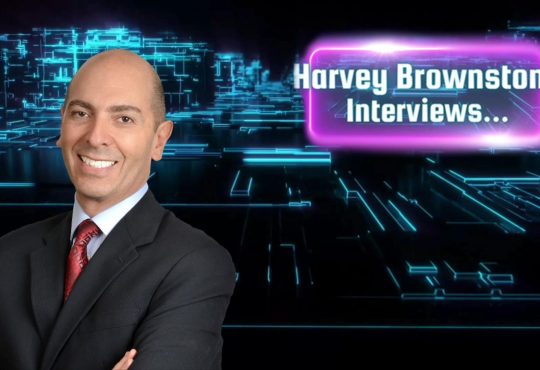‘Dickinson’ Season 2: What Price Fame?
Midway through Season Two of Apple TV+’s Dickinson, Aunt Lavinia (Jessica Hecht) takes all the Dickinson women out for a 19th century spa day, promising that by the end of it, “You won’t be the same sick, disease-ridden, melancholy women you are right now.” The show’s title character, rebellious young poet Emily Dickinson (Hailee Steinfeld) considers this promise, then asks, “What if that’s my brand?”
The brand was strong for the first season Dickinson: messy but energetic, audacious in a way none of Apple’s other inaugural shows bothered to be, and with a magnetic and comically nimble lead performance from Steinfeld. I was lukewarm on the show after the three episodes Apple gave critics prior to premiere, but this was definitely a case of a streamer doing a disservice to a new show by not making the whole thing available for review. Later installments not only brought in hilarious guests like John Mulaney (as a petulant Henry David Throeau) and Zosia Mamet (as a cynically hustling Louisa May Alcott), but did a better job balancing the series’ anachronistic humor with a more serious examination of Emily’s creative process and her secret love for Sue (Ella Hunt), girlfriend and then wife of Emily’s older brother Austin (Adrian Enscoe).
Balance is everything in a show like this, and the balance feels ever-so-slightly off in the new season. Dickinson is now a bit calmer and more sure of itself, but also not as memorably weird or funny as it was in late 2019.
Some of this is a lack of surprise that can’t be helped. When Louisa May Alcott said in the first season, “Hawthorne can eat a dick,” the shock of it was as funny as Mamet’s delivery. By now, the blurring of idiom is expected, so when Ship (Pico Alexander), the boyfriend of Emily’s sister Lavinia (Anna Baryshnikov), announces his desire for a quiet night in of “novels and chill,” it feels clever but a touch familiar.
Dickinson creator Alena Smith and her team are also striving for something more ambitious, and nuanced, than before. Though Emily and Sue’s feelings for one another remain palpable, her true love this season is more abstract: fame. Having made peace with Sue and Austin’s marriage, Emily is now determined to make her voice heard, and to acquire the trappings of celebrity along the way. The real Dickinson’s poem “I’m Nobody! Who are you?” manifests itself in the form of a young man calling himself Nobody (Will Pullen), whom only Emily can see or hear, constantly warning her of the dangers of being seen. But the double-edged sword of Emily’s hunger for attention is also there in a less mystical fashion through her new friendship with newspaper editor Samuel Bowles (Iron Fist star Finn Jones).
Bowles, like most Dickinson characters who are not Emily’s father Edward (Toby Huss) or her mother, who is also named Emily (Jane Krakowski), is a contemporary archetype in period dress — in this case, a swaggering tech bro who brags that his philosophy is to “move fast and break stuff.” He’s mercurial, at times seeming thrilled by the chance to claim Emily’s talent as his own discovery, at others bored by her and everyone else who is not his old friend Sue. And as Emily attempts different ways to attain and enjoy fame, it’s inevitably in a modern context: When she eavesdrops on public discussions of her first public poem, she may as well be reading her Twitter mentions, given how quickly the discourse turns ugly.
This is all interesting to a point, and the cast remains watchable as ever. Smith also expands the importance of some previously minor characters, like family servant Henry (Chinaza Uche), who begins running an abolitionist newspaper in secret and (in an accidental crossover with The Good Lord Bird) funneling the profits to John Brown(*).
(*) Henry is also involved in the new season’s best fusion of past and present pop culture, as the host of a barn dance that starts out like an episode of Soul Train with fiddles as the only accompaniment, then eventually goes full hip-hop with Cakes Da Killa’s “Gon Blow.”
But Emily remains a more vibrant character than everyone else, so the push to expand the prominence of the ensemble has mixed comedic results. And her hunger for recognition, no matter the cost, simply isn’t as visceral as her desire for Sue.
The season opens with voiceover narration explaining that most of Emily’s life was less documented after Sue and Austin’s wedding, and thus, “The truth, perhaps, is hidden in her poems.” These episodes are meant, among other things, to provide fictional justification for why Emily would have remained so anonymous until after her death. But the voiceover also seems like it will be providing justification for the series to stray even further from the letter and spirit of history than before. Instead, Dickinson is the same show it already was, slightly less in some areas, slightly more in others. Like Samuel Bowles, you may be giddy with its presence at times, then unexpectedly bored moments later. But that’s almost by design. Consistency will never be part of Dickinson‘s brand.
Apple TV+ is releasing the first three episodes of Dickinson Season Two on January 8th, with additional installments appearing weekly. I’ve seen all 10 episodes.








